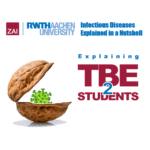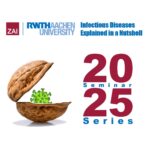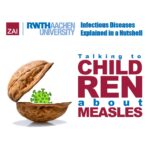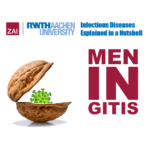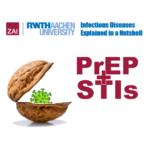Schlagwort: ‘H5N1’
Avian Influenza – Current Global Situation and Risk Assessment in Germany (May 2023)
Disclaimer!
This article and its major media content are produced by students to train science communication as part of a lecture about human infectious pathogens. The article does not represent official advice from the authorities. For authorized information about the disease in question, please refer to the official health authorities in your country or the World Health Organization.
By Laura Charlier and Meryem Pehlivan
In April 2023, the Ministry of Health in Chile reported a human infection caused by avian influenza A virus (H5N1) in Chile. Avian influenza A is a highly contagious disease mainly occurring in poultry. H5N1 is the most prominent subtype of the highly pathogenic avian influenza (HPAI) detected in infected birds.
Since December 2022, more than 120 outbreaks of avian influenza in bird populations have been documented in Germany, two of which were reported in May. In some cases, other wild animals were affected. According to the Friedrich-Loeffler institute, four cases of infected foxes have been reported this year.
Transmission from animals to humans is rare but can happen due to direct contact to an infected animal or to infected material, like saliva or feces. Human-to-human transmission is extremely rare and was reported in only a few cases, mostly after prolonged and unprotected contact with an infected, symptomatic person. Learn more about the transmission paths.
The range of symptoms due to an HPAI infection begins with no symptoms or mild illness to severe disease including lower respiratory tract disease, severe pneumonia with respiratory failure and multi-organ failure. The approximate case fatality proportion is 40-50%.
According the Centers for Disease Control and Prevention (CDC), 13 cases of human infection with avian influenza A (H5N1) have been reported worldwide since 2020. There are no cases of human infections known in Germany.
The general risk for an infection with an HPAI is currently low. However, it is important to take precautions. Three main aspects for keeping the risk low should be considered:
1: Monitoring
If you had contact to a sick or dead wild bird and develop symptoms like fever, cough, headache or muscle ache, contact your local health department and follow their instructions.
***
2: Prevention
There are many ways of preventing yourself of an infection with avian influenza. The veterinarian Claudia Miller* talks about what you need to know about bird flu and the preventive steps you should always keep in mind.
***
3: Education
As children are very curious and like to play in nature, it is extremely important to teach them in young age how to behave around wild animals. The following explanatory video may help your child to understand the possible risks.
If you are a teacher in an elementary school, consider to educate your students about the bird flu and other zoonotic infections. This information material provided by the WHO visualizes important facts accessible for young children.
Informing yourself about updates is crucial in order to adapt to changes of the current situation. If you are interested, you can use further material and read about the avian flu. Always keep in mind to use trustworthy sources and check if the given information can be verified. A current statement of the infection biologist Ayda Mellinger* addresses the question how to deal with the global bird flu situation.
*fictious character
About the authors:
 Laura Charlier
Laura Charlier
Age 25, 1st semster Biology M. Sc., major: Medical Life Science
„I think it’s crucial as a scientist to communicate scientific topics to the public. It’s not only interesting and fun to create a Blog article, but also very hard to put yourself into the position of your target audience! Therefore, seminars like this are really helpful to develop communication skills.“

Meryem Pehlivan
2nd semester Biology M. Sc., majors: Microbiology and Genetics
„I think that science communication is a very important task and skill that every scientist should master. For me, this seminar was an opportunity to learn these skills.“


